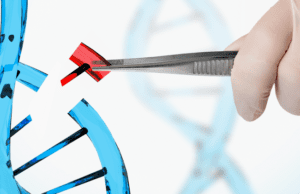Conduct of Genetics and Genomics Research
A SHG members are at the forefront of research on the human genome, studying its evolutionary history, structure, and function. Members also investigate the genetic underpinnings of health and disease, and translate discoveries into clinical advances.
SHG members are at the forefront of research on the human genome, studying its evolutionary history, structure, and function. Members also investigate the genetic underpinnings of health and disease, and translate discoveries into clinical advances.
The Society supports robust, predictable, sustainable federal funding of biomedical research to fuel these advances, and advocates for high-quality training and diverse career pathways for the next generation. The Society supports the responsible and ethical conduct of research, policies that encourage the public to participate in research, and broad sharing of research data to accelerate scientific discovery.
Key Issues
Research is providing remarkable insights into the human genome and powering our ability to translate it to improve healthcare. Scientific progress relies on continued public investment in biomedical research, including fundamental, translational and clinical research. Robust, predictable, sustainable federal funding of research not only fuels the next generation of scientific advances, it creates a biomedical research enterprise that generates diverse scientific career paths and powers local, state, and national economies. The Society recognizes the enormous value of public support for biomedical research and believes it is imperative that taxpayer dollars are spent judiciously.
Diverse participant cohorts in genetics and genomics research enables researchers to study variation across the human genome and the genetic factors that influence health and disease, as well to ensure that every segment of the population can benefit from research advances. ASHG supports policies that foster the recruitment of participants from diverse populations in genetics research. As more genetically tailored therapies come to market, it is important that the evidence base allows for their appropriate administration in all patients to reduce and one day eliminate health disparities.
The public is a major beneficiary of genetics research, and also a vital partner in it through participation in research studies. ASHG supports strong protections to ensure the rights and welfare of research participants. The Society believes researchers must minimize potential harm to participants and be clear about potential benefits as well as risks of participation in a study. At the same time, it is important that compliance with regulations designed to protect participants is not overly burdensome for researchers and institutions.
Advances in gene-editing technologies now allow researchers worldwide to modify DNA sequences inside living cells quickly, cheaply, precisely, and efficiently. It is possible that genome-editing techniques could be incorporated into human-assisted reproduction and thereby introduce changes that are passed to future generations. ASHG believes that, at this time, given the nature and number of unanswered scientific, ethical, and policy questions, it is inappropriate to perform germline gene editing that culminates in human pregnancy.
However, there is no reason to prohibit in vitro germline genome editing on human embryos and gametes, with appropriate oversight and consent from donors, to facilitate research on the possible future clinical applications of gene editing. There should be no prohibition on making public funds available to support this research. The future clinical application of human germline genome editing should not proceed unless, at a minimum, there is (a) a compelling medical rationale, (b) an evidence base that supports its clinical use, (c) an ethical justification, and (d) a transparent public process to solicit and incorporate stakeholder input.
ASHG supports policies that foster a more diverse and inclusive genetics and genomics research workforce through strong collaborations across academia, industry and government. Greater research workforce diversity is crucial to ensuring varied perspectives and experiences inform, enrich, and benefit the scientific agenda.
Policies that support scientific freedom and responsibility are essential for advancing fundamental discoveries, clinical advances, and innovation. The Society will also advocate for policies that allow researchers to pursue scientific knowledge in an inclusive and collaborative environment.
The Society supports policies that foster the broad sharing of scientific and clinical data. With the unprecedented volume of genomic and associated data generated today, it is critical that data are shared with the scientific and healthcare communities to accelerate discovery and inform clinical care. Data sharing deepens our understanding of genomic variability and the genetic underpinnings of disease, leading to advances in research and medicine and maximizing the investment of public dollars. Data sharing must be conducted in an ethical way that respects research participants and patients and protects their privacy.
